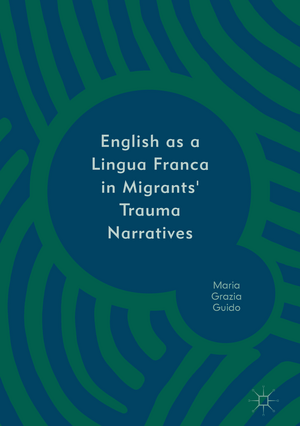English as a Lingua Franca in Migrants' Trauma Narratives
Autor Maria Grazia Guidoen Limba Engleză Hardback – 27 feb 2019
Preț: 584.92 lei
Preț vechi: 688.15 lei
-15% Nou
Puncte Express: 877
Preț estimativ în valută:
111.93€ • 119.69$ • 93.32£
111.93€ • 119.69$ • 93.32£
Carte tipărită la comandă
Livrare economică 17 aprilie-01 mai
Preluare comenzi: 021 569.72.76
Specificații
ISBN-13: 9781137582997
ISBN-10: 1137582995
Pagini: 216
Ilustrații: XV, 228 p. 3 illus.
Dimensiuni: 148 x 210 mm
Greutate: 0.45 kg
Ediția:1st ed. 2018
Editura: Palgrave Macmillan UK
Colecția Palgrave Macmillan
Locul publicării:London, United Kingdom
ISBN-10: 1137582995
Pagini: 216
Ilustrații: XV, 228 p. 3 illus.
Dimensiuni: 148 x 210 mm
Greutate: 0.45 kg
Ediția:1st ed. 2018
Editura: Palgrave Macmillan UK
Colecția Palgrave Macmillan
Locul publicării:London, United Kingdom
Cuprins
1. Introduction: setting the scene.- 2. Trauma narratives in unequal migration encounters.- 3. Trauma-narrative analysis at the level of Modality.- 4. Trauma-narrative analysis at the level of Language Typology.- 5. Trauma-narrative analysis at the level of Lexis.- 6. Trauma-narrative analysis at the level of Text Structure.- 7. Trauma-narrative analysis at the level of Pragmalinguistic Schemata.- 8. Trauma-narrative analysis at the level of Sociopragmatic Schemata.- 9. Conclusions: a cross-cultural reassessment of the ‘cooperative principle’.
Notă biografică
Maria Grazia Guido is Full Professor of English Linguistics and Translation at the University of Salento, Italy, where she is also Director of the Masters Course in ‘Intercultural and Interlingual Mediation in Immigration and Asylum Contexts’, and of the International Ph.D. Programme (Universities of Salento and Vienna) in ‘Modern and Classical Languages, Literatures and Cultures’. Her research interests are in cognitive-functional linguistics applied to ELF in intercultural communication and specialized discourse analysis. Her monographs include: English as a Lingua Franca in Cross-cultural Immigration Domains (2008), The Acting Interpreter (2013), The Acting Translator (2012), The Imaging Reader (2005), The Acting Reader (1999), Mediating Cultures (2004), and Register and Dialect in an Integrated Model of European English (1999).
Textul de pe ultima copertă
"Providing a positive counterbalance to the current anti-immigration rhetoric which is so prevalent, Guido’s research offers pertinent insight into English as a Lingua Franca being used in high stakes communicative acts where power imbalances are acute, and will make substantial contribution to the field."
— Haynes Collins, Associate Professor of Intercultural Studies, University of Leeds, UK
Maria Grazia Guido is Full Professor of English Linguistics and Translation at the University of Salento, Italy.
Caracteristici
Examines how linguaculture can affect the reception of migrants’ trauma narratives Argues that PTSD categories established by the American Psychiatric Association (APA) and used within Transcultural Psychiatry fail to accommodate non-Western experiences of trauma Provides linguistic insight into interpretive gaps between migrants and refugees using ELF variations and experts using specialized and culture-bound discourses Presents solutions to enable Western experts to better understand culture-bound ways of expressing trauma
